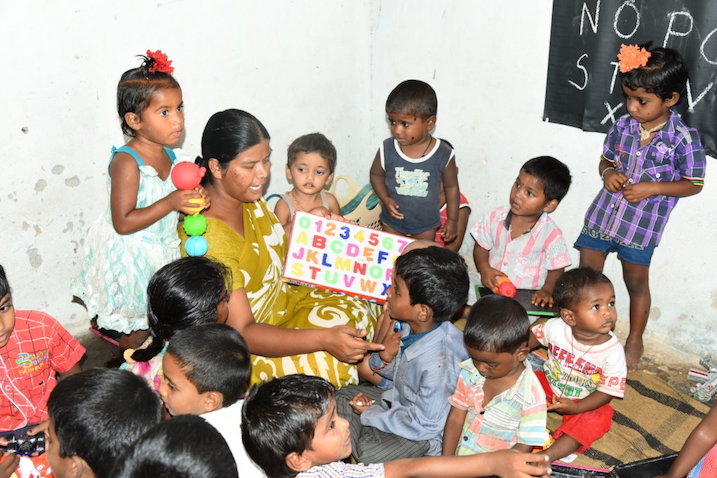In an effort to address the pressing challenges faced by migrant families and provide a safe and nurturing environment for their young children, the district administration in Kochi is set to launch a specialized creche dedicated exclusively to children aged up to six. With funding secured through corporate social responsibility (CSR) contributions from the CII Foundation and the Sawmill Owners and Plywood Manufacturers Association, this project aims to alleviate the burden on working migrant parents and offer a reliable daycare facility. The Women and Child Development department’s technical support and project report have been instrumental in bringing this initiative to fruition.
The need for such a facility was brought to light by a tragic incident in Allapra near Perumbavoor, where a four-year-old migrant child drowned in a wastewater pit while accompanying her mother to work at a plywood manufacturing unit. This heart-wrenching incident underscored the urgency to establish a safe space for migrant children while their parents are at work.
District Administration Initiates Dedicated Creche for Migrant Children
With the growing influx of migrant families seeking livelihood opportunities, there arises a crucial need for support structures to cater to their unique requirements. The district administration’s initiative to establish a dedicated creche for migrant children up to six years old is a laudable step in this direction. By providing a secure and nurturing environment, the creche aims to ease the burden on working parents and ensure that their children receive adequate care and attention during their formative years.
Establishing the creche project faced numerous challenges, particularly when it came to finding a suitable location. The demand for affordable housing for migrant workers had led to most buildings being rented out in the area, making it difficult to secure a property for the creche. However, through perseverance and determination, a suitable building was finally secured in Onakulam near the Vengola panchayat office.
The tragic incident in Allapra, where a young migrant child lost her life, served as a poignant reminder of the urgency to provide safe spaces for children while their parents work. The incident further motivated the district administration to expedite the establishment of the creche and ensure that such a tragedy does not recur.
A Ray of Hope for Migrant Children
In light of the recent abduction, abuse, and murder of a five-year-old migrant girl in Aluva, the need for daycare facilities and creches for migrant families has become more evident than ever. In response, the Women and Child Development department has prepared informative leaflets in multiple languages, aiming to reach out to migrant communities and raise awareness about the upcoming creche in Onakulam.
The creche will cater to children up to the age of six, providing them with a nurturing environment, educational activities, and proper nutrition. For children aged above three, the creche will deploy a vehicle to pick them up, ensuring their safe transportation. Parents of children below three years will be responsible for dropping them off at the facility.
Operational Details and Future Expansion Plans
The creche in Onakulam is expected to accommodate up to 25 children and will operate from 7 a.m. to 7 p.m., providing flexibility for parents who work varying shifts. To ensure a high standard of care, a team of four well-trained staff members will be deployed in two shifts.
The success of this pilot initiative will serve as a model for future projects, with the Women and Child Development department expressing a keen interest in expanding similar creches with CSR funding to other migrant labour-intensive regions. By doing so, they hope to provide support and assistance to a larger number of migrant families, easing their daily struggles and ensuring a better future for their children.
While the district administration’s efforts to establish the new creche are commendable, it is equally crucial to optimize the utilization of existing facilities. A creche near the High Court, primarily meant for migrant children, has faced underutilization due to the lack of transportation services for parents. Recognizing this shortfall, the Women and Child Development department is diligently working to enhance transportation facilities, making it easier for parents to send their children to the creche while they attend to their work commitments.
Conclusion
The establishment of a dedicated creche for migrant children marks a significant step towards supporting the well-being and development of these vulnerable young ones. The district administration’s proactive approach, in collaboration with corporate social responsibility (CSR) funding and technical support from the Women and Child Development department, showcases a commitment to uplifting migrant families and creating a safer environment for their children. The tragic incidents that spurred the initiation of this project serve as poignant reminders of the urgency and significance of such facilities. By expanding this model to other labour-intensive areas and improving the utilization of existing resources, we can ensure that migrant children across the region have access to a nurturing and supportive environment as they grow and flourish.


